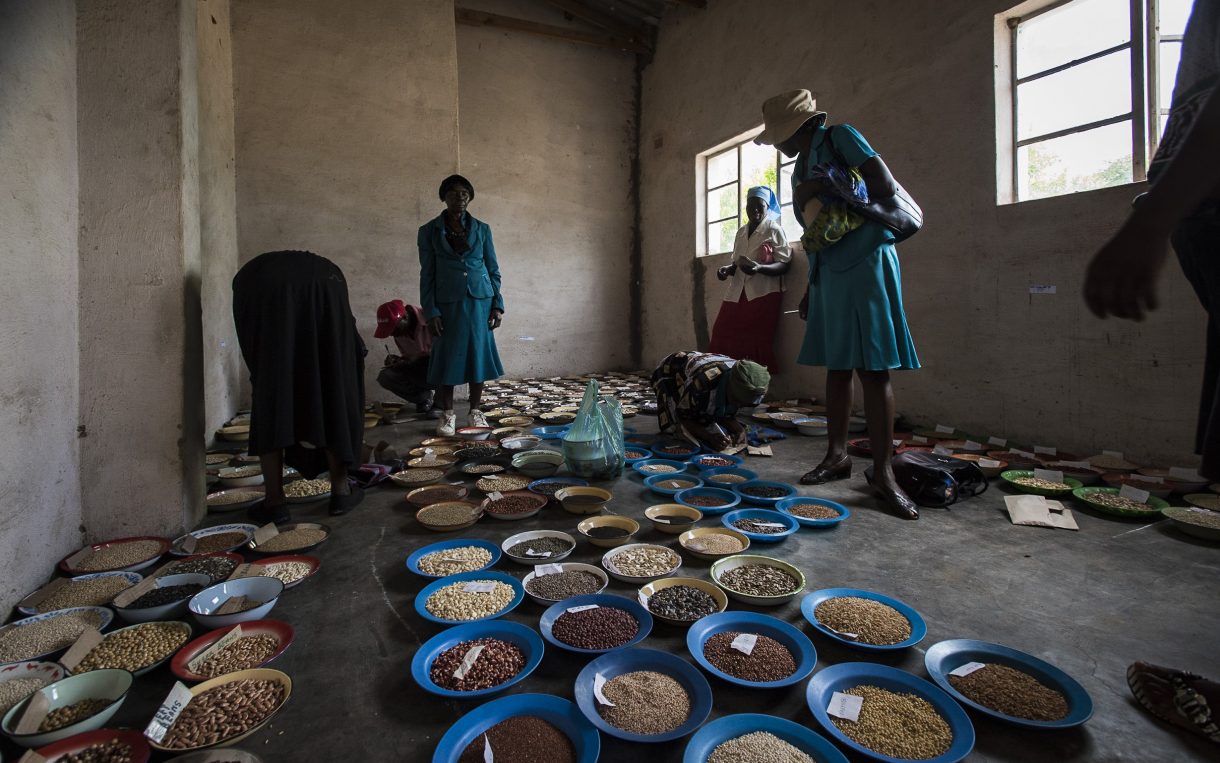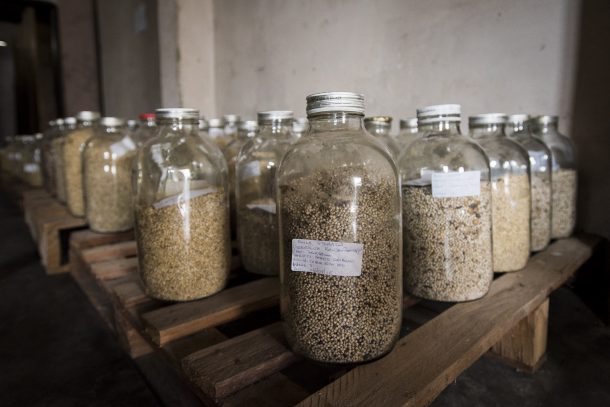US seeds have joined the global gene pool. Why it matters for the world’s farmers.
 Photo: Sascha de Boer / Oxfam Farmers peruse seed varieties. (Photo: Sascha de Boer / Oxfam)
Photo: Sascha de Boer / Oxfam Farmers peruse seed varieties. (Photo: Sascha de Boer / Oxfam)
The US joining the Treaty potentially means both good and bad things for food security and the world’s farmers.
Bram de Jonge is Seed Policy Advisor at Oxfam Novib.
At long last, the United States has ratified the International Treaty on Plant Genetic Resources for Food and Agriculture of the UN Food and Agriculture Organization (FAO). A mouthful of a title, I know, but a very important issue no less. And while this is a welcome development after a 15 year wait, it holds both good and bad news for farmers.
The Treaty was adopted in 2001 and now has 140 member countries. It essentially governs the conservation and sustainable use and sharing of genetic plant materials – primarily seeds. It also stipulates that the benefit of the use of these materials (a scientific discovery, for instance) should be available for all Treaty members to use and benefit from. The Treaty states that the genetic resources of the most important crops for agriculture and food security – like rice, maize and potatoes – should be freely available to farmers, researchers and breeders in countries that are party to the Treaty.
Most importantly, the Treaty also recognizes Farmers’ Rights, and is the only legally-binding international agreement that does so. These rights aim to honor “the enormous contribution that the local and indigenous communities and farmers of all regions of the world…have made and will continue to make for the conservation and development of plant genetic resources” for global food security. One crucial aspect of Farmers’ Rights is the right of farmers to save, exchange, and sell their seeds – an issue of huge importance as this is the main way farmers around the world acquire their seeds. Yet it remains a big point of contention in the farming industry, even in the United States.

The right of farmers to save, exchange and sell their seeds is often seen by seed industry giants like Monsanto as a threat to their profit potential. Yet, poor farmers do not always have the means to purchase seeds each year, nor are the seeds available in the market always what farmers would find as the best. And so the rights of farmers to save, sell and exchange their seeds is vitally important to their livelihoods. In addition, smallholder farmers’ access to diverse seeds is of crucial importance for the development of things such as drought tolerant crops and early-maturing varieties, especially in the face of climate change. In order for innovation to continue and global food and nutrition security to be realized, there needs to be fair play for everyone, namely for farmers who continue to innovate in their fields under diverse and ever-changing environmental conditions.
Despite its importance, the press release put out by the American Seed Trade Association (ASTA), a strong advocate for US ratification of the Treaty, makes no mention of Farmers’ Rights. According to ASTA, the ratification will “ensure US public and private sector plant breeders have secure access to global plant materials as they work to develop the next generation of plant varieties to meet the needs of a growing population.” It’s true, that under the Treaty the US may take from the global plant gene pool – but that’s one side of the story. The other – and arguably more the more game changing – side is that the US is obligated to reciprocate. The US holds some of the largest and best-documented collections of public germplasm in the world. And under the Treaty these collections are now available worldwide.
By not having ratified the Treaty earlier, the US collections were available to researchers and plant breeders around the world without being subject to the Treaty’s benefit-sharing requirements. This allowed researchers and others who were part of the Treaty’s multilateral system to use materials from the US collections and patent their products without having to pay a percentage of any commercial benefits they derive from their research into a common fund to support the sharing of benefits to farmers in the developing world. This major source of ‘leakage’ will now potentially cease to exist. Another advantage of US ratification is that China, not wanting to be left behind, may also ratify the Treaty, further increasing the genetic materials available in the Multilateral System.
The bad news is, with a power player like the US now part of the Treaty, efforts to promote the realization of Farmers’ Rights may encounter extra resistance. The implementation of Farmers’ Rights has already been painstakingly slow and attempts to hasten national plans and actions have met resistance with some of the contracting parties of the Treaty. Given the US positions in other international forums and their requirements in many Free Trade Agreements with developing countries, like supporting strong intellectual property rights (which prevent farmers from exchanging / selling their seed), we may continue to see slow progress on Farmer’s Rights, or see it ignored altogether. Hence, the battle to realize Farmers’ Rights continues, this time with the US directly influencing the debate from the inside.